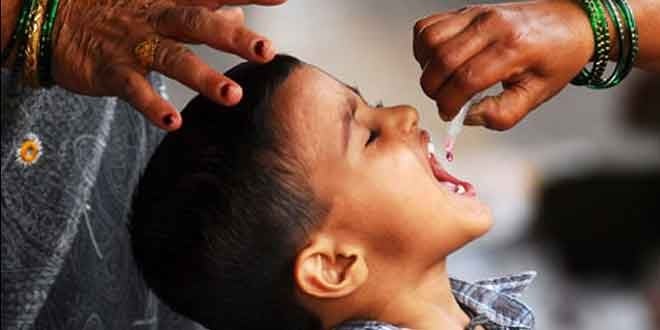
Community-based strategies should be devised to eradicate Poliovirus in Pakistan

The global community is close to eradicating Poliovirus on a global scale -- a huge step forward in eradicating yet another deadly disease. Last time such a major feat was accomplished in 1980 when smallpox was wiped out. But success hinges on winning the last ditch battle being fought in Pakistan.
Knowing that the stakes are too high, the Global Polio Eradication Initiative’s Independent Monitoring Board (IMB) has recently recommended that community-based strategies should be devised to eradicate the Poliovirus in Pakistan. However, without understanding the issues driving certain communities against the Polio vaccine, the government is unlikely to be able to devise successful community-based strategies to eliminate the disease.
The hegemonic narrative, seeking to condemn rather than to understand communities that are actively opposing, or silently refusing the Polio vaccine, only caricatures them as ‘hotbeds of indoctrination’. This hostility to Polio vaccine is seen as essentially an irrational phenomenon, an anachronism fundamentally at odds with the modern world.
Since the resistance to Polio vaccine is seen as influenced by religious and cultural factors, state response has been to try and encourage people to get the vaccine by rallying religious authorities to promote the vaccine, issue fatwas (religious rulings) in favour of Polio vaccination and to deliver khutbas (religious sermons) denouncing the anti-Polio campaign. It is imperative to establish the context in which information about Polio circulates so that we can decipher the political discourse through which the Global Polio Eradication Initiative is seen in Pakistan.
Issues driving the anti-Polio campaign are, in fact, political in nature. Though existed long before, resistance to the Polio vaccine hardened as a by-product of the United States’ "war on terror" launched some 14 years ago. The vaccination was one of the tools Western espionage agencies used in this war. It is now a well-known fact that the CIA organised a fake vaccination programme in an elaborate attempt to obtain DNA from the Osama bin Laden’s family. Consequentially, communities find it difficult to put trust in a ‘Polio Eradication Initiative’ campaign originating in the West and seen to be imposed as a global solution upon the local population.
Community-based strategies could offer a solution to a perceived credibility problem of the West and Western-affiliated organisations in Pakistan, helping combat deeply entrenched misinformation regarding the Polio vaccine. Devising community-based strategies against this backdrop requires a new way of thinking to counter the dominant discourse on polio eradication, underpinned by the assumption that it is people’s religious belief /cultural influence that does not allow them to recognise the benefits of the vaccination.
A new paradigm demands considering the refusal to vaccinate as a rational choice by the people, given their interpretation of their political experience, which means engaging with the population to understand their perspective. Optimism resulting from recently raised hopes of an imminent Polio free Pakistan seems unwarranted. The true extent of Pakistan’s Polio problem is still hard to measure.
In the absence of a credible monitoring and reporting mechanism, many cases may be going misreported. The government of Pakistan feels justified in sticking to its current policy due to the praise it received from IMB for somewhat containing the deadly virus. The credit even for this illusive success goes to the ongoing conflict in FATA and the ensuing displacement of children, essentially making them accessible for vaccination.
The government’s narrow focus at eliminating the virus at any cost is primarily due to a fatigue as an aftermath of a long drawn struggle against Polio virus. However, there is no excuse for the government to continue to reach out for tired and unimaginative solutions that have failed time and again; the coercion and arrests are the substitute to educate and engage community in a meaningful discourse.
Imran Khan’s ‘Justice for Health’ campaign, sustained by brute force that had imprisoned hundreds of parents for refusing to vaccinate their children, is now being considered worth replicating in other parts of Pakistan. Against the sombre backdrop of rapidly deteriorating social conditions of the people where poverty and youth unemployment is rampant, it can only accentuate the already deeply fragmented political landscape in the tribal areas. IMB, in its recent report, bluntly stressed this fundamental weakness of the Polio program in Pakistan which lacks any credible communication strategy: "It is no good sending 500 police officers into an area without … ensuring that sophisticated preparatory communications engage the local populations …"
The rampant misinformation actually casts a doubt over the effectiveness of the programme management. The gap in the programme management and the community engagement is too wide to overcome except through indigenising the whole Polio initiative.
Many basic dysfunctions persist but the agonising concern is that the fundamental weakness of the Polio programme remains the lack of credible communication strategy to address community concerns. Short-term gains come at the price of mortgaging the longer term future.